Marine engineering work on board ships include but not limited to monitoring the mechanical, electrical, hydraulic and control equipment; the sophisticated engine management systems; maintenance and monitoring of the machinery space and log readings to carry out engineering operations safely.
Our courses are aligned and accredited to the standards specified under Chapter 3: STCW Code for Standards Regarding Engine Department (Certification).
At the management level, you have the Chief Engineer and the Second Engineer (First Assistant Engineer), in charge of the engine department who hold complete responsibility for the operations of the engine room and maintenance of all types of machinery onboard the vessel.
At the operations level you have the DDE (Designated Duty Engineer) or the Engineer Officer of the Watch (EOW- 4th engineer and 3rd Engineer) who perform regular watch keeping and engineering maintenance under the supervision of the management level engineers. There are also Electro-technical officers who takes care of the electrical/electronic equipment on board and overseen by the Chief and the Second Engineers. There are Ratings Forming Part of an Engineering Watch who must understand orders of the certified engineering officers relevant to watchkeeping duties, carry out a watch routine compliant with the duties of an engine room watch, and more.
Table A-III/2 of the STCW Code govern the responsibilities, tasks and duties of management level. Candidates for certification as chief engineer officer and second engineer officer of seagoing ships powered by main propulsion machinery of 3,000 kW power or more are required to demonstrate ability to undertake the tasks, duties and responsibilities listed in column 1 of STCW Table A-III/2.
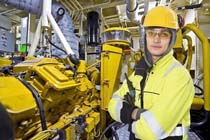
Training programs for Chief and First Assistant Engineers include:Engineering principles and application of thermodynamics for climate control and efficient

A DDE means a qualified engineer, who may be the sole engineer on vessels with a periodically unattended engine room.
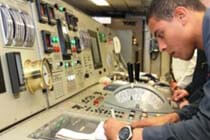
This is a program required for those seeking a QMED – Junior Engineer endorsement. It will satisfy the professional examination requirements for 46 CFR 12.501(c)(5) for a national rating endorsement as QMED-Junior Engineer.
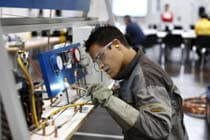
This course is in compliance with the requirements of 46 CFR 12.501(c)(5). The training satisfies the requirements of Table 1 to 46 CFR 12.505(c) for Refrigerating Engineer / Electrician examination modules.
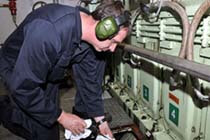
This course is designed for entry level engine room mariners. This training satisfies the requirements for the General Safety, and Oiler examination modules.
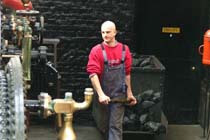
The QMED04 Fireman-Watertender course is more suitable for a steam propelled vessel. The course includes knowledge of associated machinery and procedures, and a final exam.
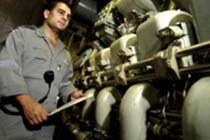
The course provides the necessary knowledge and technical information to enable successful completion of the QMED05 Pumpman/Machinist examinations consisting of subjects as detailed in 46 CFR Table 1 to §12.505(c)